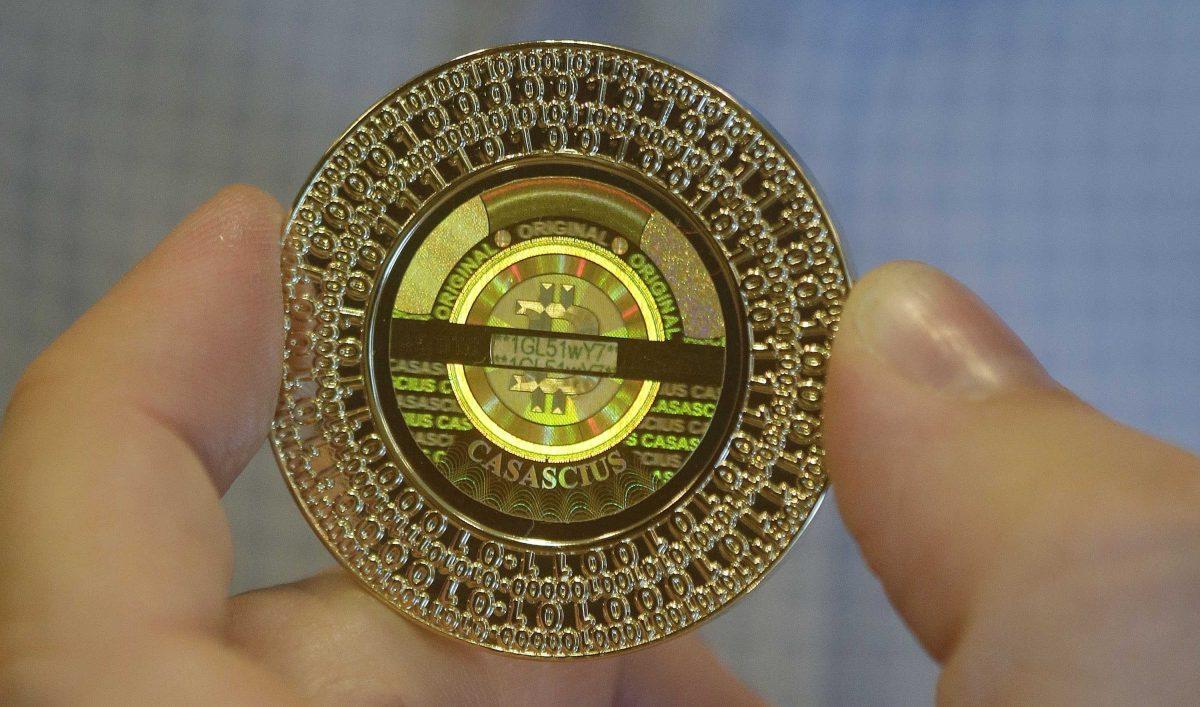Technology moves at the blink of an eye.
Computers now stand in for typewriters, film has been replaced with digital imagery and even our phones do much more than make calls.
It only makes sense for our money to go from dollars and cents to bits and bytes.
Bitcoin is a digital currency created in 2009 by a pseudonymous developer (or developers) named Satoshi Nakamoto to serve as a tool for peer-to-peer transactions over the Internet. They are largely transparent, are based on cryptography and, as of this writing, are worth $81 a coin. At this moment, they are probably being used to buy anything from a new T-shirt to black market LSD.
However, Bitcoin’s greatest draw, its most significant sociological impact, comes from its decentralized nature.
Bitcoin is based on a decentralized network of “miners” who add new coins to the market and facilitate transactions between individuals. Yet, all you need to be a Bitcoin miner is to download a computationally intensive application and run it on your hardware.
These miners ensure that individuals can exchange the currency among one another without the need for a central authority like a bank and with limited transaction fees. They also maintain records of transactions stored in a public database called the block chain, allowing users to discern trustworthy from untrustworthy transactions and researchers to keep tabs on the Bitcoin marketplace.
Bitcoins, therefore, provide a means of exchange free from the oversight of banks that can be simply done with only your computer or smartphone.
The currency’s open-source nature and relative anonymity also make it a favored currency for those concerned about their privacy – especially those looking to purchase illegal materials, such as drugs and other black market items.
With such a limited barrier-of-entry, Bitcoin’s influence has spread out, allowing the currency to become a potential investment for many.
Early Bitcoin miners potentially made a killing off their investment. At the beginning of this year, already four years past their creation, Bitcoins were only worth about $20. With current prices already four times greater than that, the gains made on an early Bitcoin investment must be impressive.
However, there are still some downsides to the currency.
First, mining requires far too much computational power. As more coins are created, it becomes more difficult to mine the coins, requiring increasingly powerful computers. This can create an environment in which an elite group, comprised of those wealthy enough to afford sufficiently powerful machines, become the top class in the Bitcoin market.
It’s also possible Bitcoins will be hoarded instead of exchanged as people hope to capitalize on their investment.
Second, it is frighteningly volatile.
After climbing to a peak value of $260 last week, Bitcoins lost about 40 percent of their value in one day, crashing to around $160. And this isn’t the first time the currency has crashed.
Similar crashes occurred in 2011 and 2012, and the currency didn’t reach its pre-crash peak again until 2013.
Without a bank, Bitcoins also have no insurance for their value. Losing your password or having your computer hacked could entail losing more money than you ever feared.
Third, it isn’t widely used — yet.
Certain websites, such as WordPress and Reddit, accept Bitcoins as currency, but these are few and far between. The vast majority of retailers do not deal in Bitcoins leaving the currency fairly useless.
Whether Bitcoins take off, or cause a bubble, remains to be seen.
However, Bitcoins are an intriguing experiment in the possibilities provided by digital tools, and in an age of too-big-to-fail banks, they offer a more autonomous, decentralized means of exchange.
David Scheuermann is a 21-year-old mass communication and computer science junior from Kenner.






